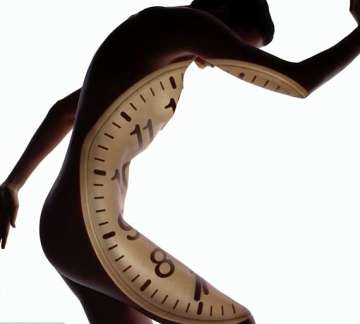If you change your work shift and sleeping hours, you disturb the body clock and it rewards you with all the things you do not want - weight gain, diabetes, stress, heart disease, mood disorders and sometimes even cancer.
As life runs on rhythms, scientists have now found that the biological clock resembles an orchestra with multiple conductors, not just one, as earlier thought.
The clock network consists of many independent clocks, each of which drives rhythms in activity, found the study.
The researchers found that interactions among neurons that govern circadian rhythms are more complex than originally thought.
A circadian rhythm is an approximately 24-hour cycle in the physiological processes of living beings, including plants, animals, fungi and cyanobacteria.
The researchers looked at the circadian clock neuron network in fruit flies, which is functionally similar to that of mammals, but at only 150 clock neurons is much simpler.
Earlier, scientists thought that a master group of eight clock neurons acted as pacemaker for the remaining 142 clock neurons, just like a conductor leading an orchestra, thus imposing the rhythm for the fruit fly circadian clock.
It is thought that the same principle applies to mammals.
"The finding shows that instead of the entire orchestra following a single conductor, part of the orchestra is following a different conductor or not listening at all," said Orie Shafer, assistant professor of molecular, cellular and developmental biology at University of Michigan in the US.
Interactions among clock neurons determine the strength and speed of circadian rhythms, said a researcher.
So, when researchers genetically changed the clock speeds of only the group of eight master pacemakers they could examine how well the conductor alone governed the orchestra.
They found that without the environmental cues, the orchestra did not follow the conductor as closely as thought.
Some of the fruit flies completely lost sense of time, and others simultaneously demonstrated two different sleep cycles, one following the group of eight neurons and the other following some other set of neurons.
The researchers suspect that a similar organisation will be found in mammals, as well.
